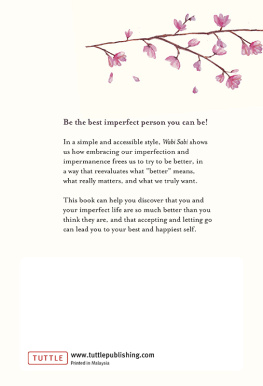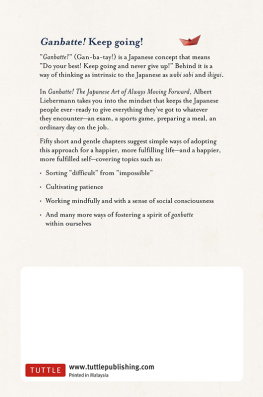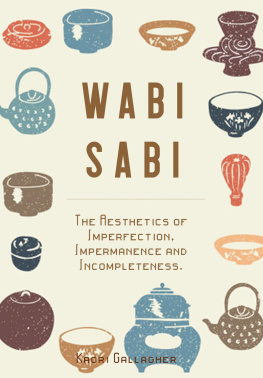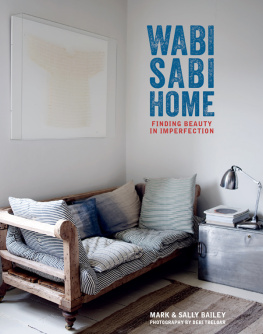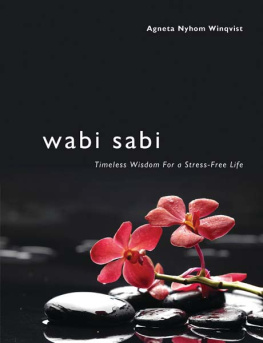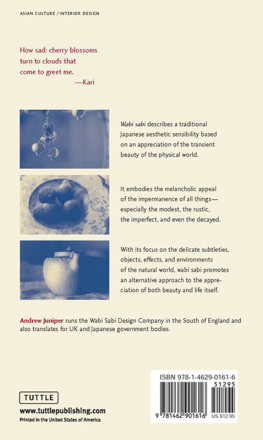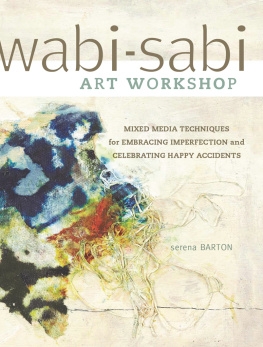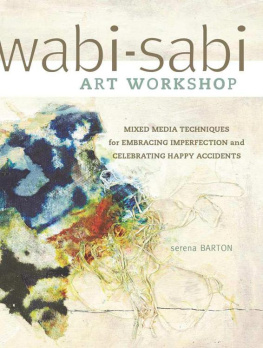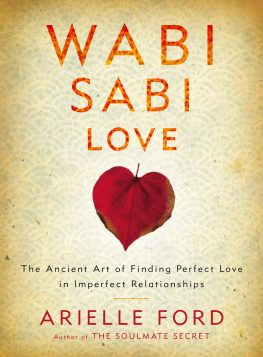Contents
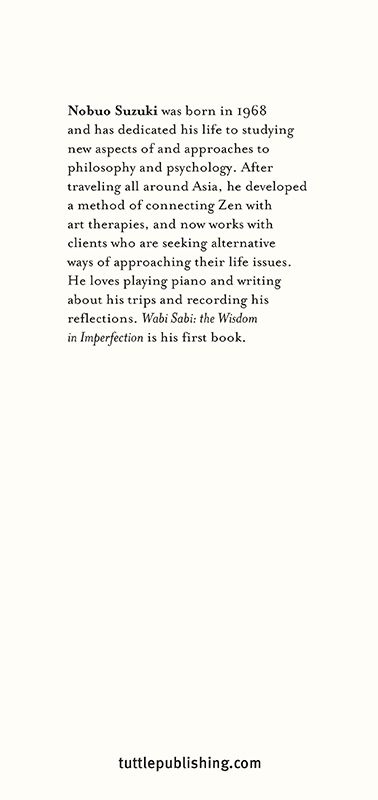
Wabi Sabi
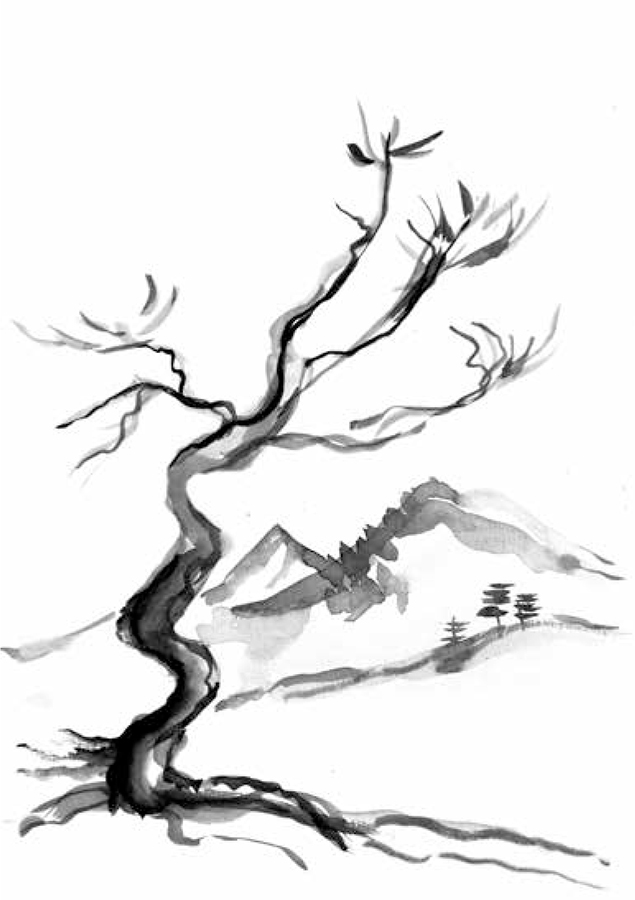
The straight line belongs to men, the curved one to God.
ANTONI GAUD
Foreword
I remember clearly the first time I heard the term wabi sabi. It was fifteen years ago on a live TV show in Japan. I was really nervous at the start of the interview but I found that I could follow the questions and answer in my beginner level Japanese. Until the announcer said: What do you think about wabi sabi?
I had no idea what wabi sabi is, and I was on live TV! I couldnt just whip out my phone and look it up. After a brief, awkward pause, I answered with something totally unrelated. It was obvious that I didnt understand the question.
The shame I felt from that experience set me on an adventure of studying and learning about wabi sabi and Japanese aesthetics in general, an adventure that continues to this day. Most certainly, wabi sabi is one of the greatest things Ive learned from the Japanese people, and its had a powerful effect on who I am as a person and on my world view.
I asked all my Japanese friends, my coworkers, my girlfriend, all the new people I met: What is wabi sabi? What do you think about wabi sabi? What is wabi sabi for you? After a while I realized that no two answers would ever be the same, but all of them had a common essence: life and the universe we live in is all about the imperfection and impermanence of all things.
I soon came to realize that wabi sabi is more than aesthetics. Its about life, being human and even about the universe in general. Its about the ephemeral nature of all things and learning to accept that, even to embrace it. Wabi sabi is an invisible texture that interconnects Japanese art, lifestyle, architecture, history, philosophy, religions and even Japanese thought, social behavior and mindset.
Western thought, and more specifically, modernity, pushes all of us to think that there is an ultimate perfect goal in all things we do that will lead us to success and happiness. Nobuo Suzuki helps us to reflect deeply on this supposed aim to success, and on how we live in modern cities. His words helped me to remember that perfection does not even exist to begin with; it is only in the realm of our human imagination (and mathematics, maybe).
Wabi sabi is reality.
Perfection does not exist.
After being bathed in the wisdom of wabi sabi I started experiencing Japan through different eyes. I noticed that Id begun to look at Japanese bowls with fascination instead of indifference, the way my younger self did. I also started enjoying and admiring its gardens, poetry, pottery, ikebana and architecture more.
The change in my thinking and perception wasnt limited to how I see Japan and things Japanese. When I was traveling back through Europe I noticed that I had a renewed interest in all types of art, but also in peoplein different lifestyles, and in my family and friends in all of their wonderful imperfections. Everything had new value for me.
In retrospect I realized something funny: I didnt have to feel ashamed of my answer on TVbecause wabi sabi cant really be explained, my answer was probably correct. Moreover, its ok to be imperfect, its ok to not know something (even when asked on television).
Wabi Sabi: the Wisdom in Imperfection is a beautiful exploration that goes from the basics of wabi sabi to its deeper meaning in all its facets. This book does not pretend to offer a definitive explanation of the wabi sabi philosophy, but it will make you want to dive into the concept, and so change forever the way you think and feel about yourself and the world we all share.
After reading this book, Ive found myself more aware of wabi sabi everywhere in my day-to-day while working and interacting with others, when Im walking in nature or in a city, and when I am doing nothing in particular. Im also more aware of the pain we put ourselves through when we live at odds with wabi sabi, constantly trying to perfect our lives, to climb higher, to get better jobs, better houses, better routines and better everything. In todays world, we are infected with thoughts like I missed the chance to accomplish this or that, Im not achieving enough, I will never be as good as, and in this way we talk ourselves into feeling inadequate and unworthy. And we shouldnt. We are beautiful beings whose goals and expectations have been misshaped by modern values. Why are we all aiming to have a perfect life that does not even exist?
Wabi sabi is about learning to be ok with whatever it is that we are and with what we have in this moment. It doesnt take away our responsibility to strive to be better, more fully alive people. It means that once we realize that we are ok with the present moment, we move ahead every day, step by step, aiming not toward perfection, but toward our best selvesto discover the essence of who we really are, our ikigai. This idea of freeing ourselves of unrealistic expectations in order to move forward, to become better, is one of the many lovely takeaways youll find in the pages of this book.
Certainly, I know more now about wabi sabi than I did when I first heard the term fifteen years ago. But I can also say that the more I know about wabi sabi, the deeper it runs in me, and I will never get tired of it.
This book has taken me to some new places on my journey through wabi sabi. Its perspective refreshes my enthusiasm for the experience of being alive in the world as it is. And, its helped me to appreciate the wabi sabi philosophy even more and to cherish it as a guide on how to live my life.
Lets embrace our imperfect selves and our imperfect world, to see that worlds beauty and thereby make it even more beautiful. Nobuo Suzukis book can start you on that path. I hope youll enjoy reading it as much as I did.
HCTOR GARCA
Tokyo, October 2020
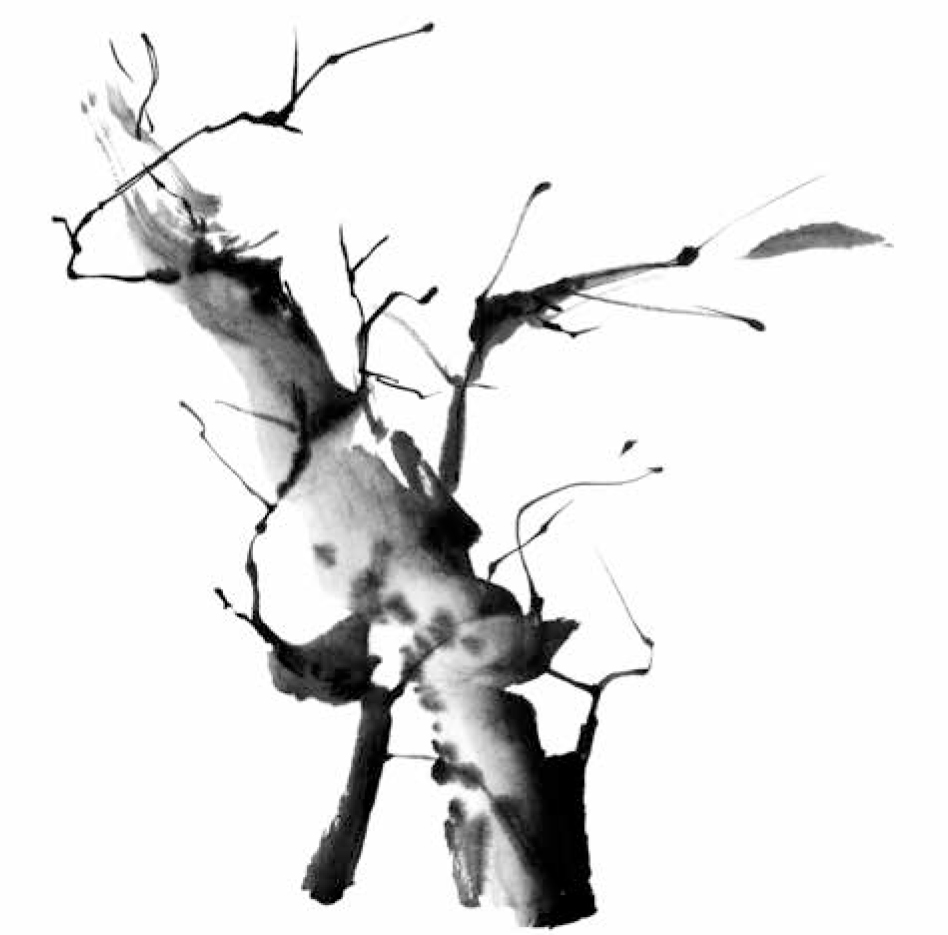
PROLOGUE
Th e Magic of Imperfection
It is said there was a monk in charge of the garden of a Zen monastery in Japan who had a peculiar habit. When sweeping the fall leaves from the stone path, he would let one leaf fall to the ground just before going back inside his house.
Why did he do that?
For one thing, the trees themselves would soon sprinkle the path with more golden leaves. For another, the Japanese ideal of beauty does not seek perfection, uniformity and exact symmetry, but naturalness: the beauty conveyed by a fallen leaf in the empty garden of a Zen monastery.
One of the distinguishing features of Japanese culture is its peculiar concept of beauty. For a Westerner, even for a Chinese, the most beautiful cup is an impeccably fashioned one, with a perfect circumference, a smooth immaculate surface andif it is decoratedan exact and uniform arrangement of the decorations.
In Japan, however, the most highly-prized cupand the most expensivetends to be the one that contains flaws, because that makes it unique. It may have dents, sandstone stuck to it or even be cracked or mended through the art of kintsugi, which we shall talk about later on in this book.

